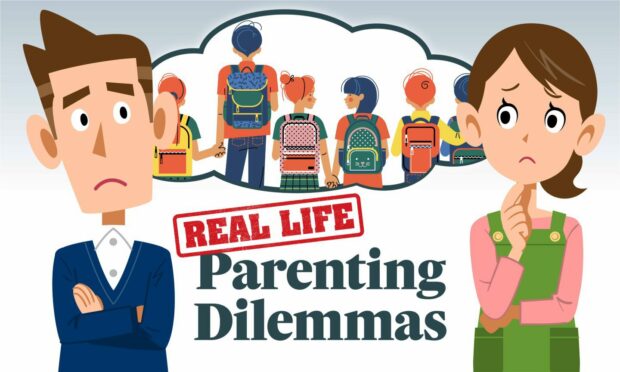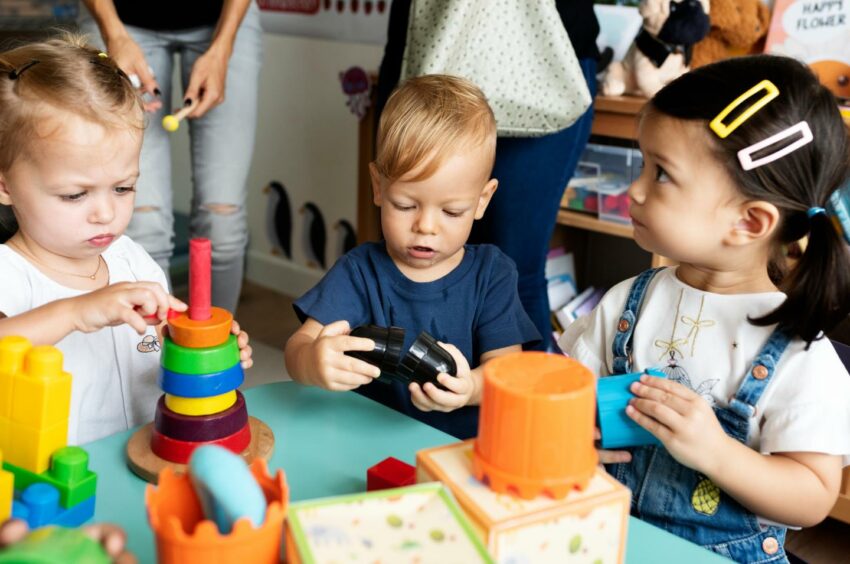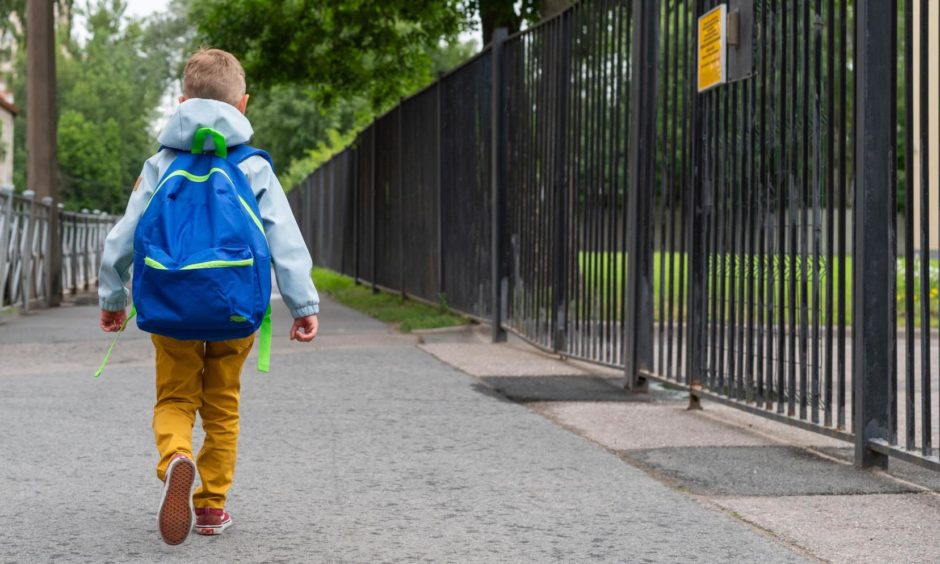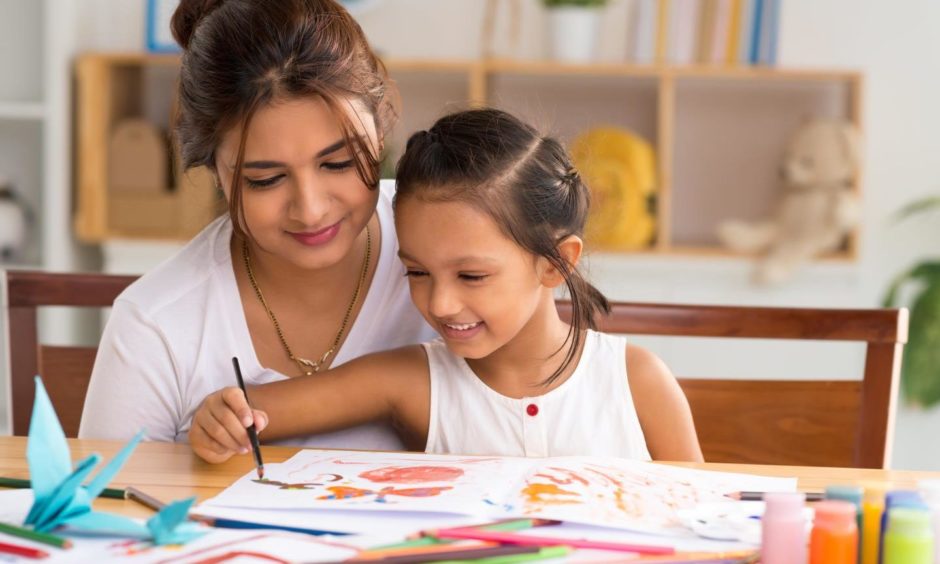As parents prepare to fill out their enrolment forms for Primary One, many of us will be full of nerves and trepidation.
Probably the biggest question in many parents’ minds is ‘Are they ready for school?’
But Highland educational psychologist James McTaggart says we may be asking the wrong question.
In fact, starting school is less ‘Are they ready?’ and more ‘Are they prepared?’
That’s because when it comes to starting school, the education system is ready and waiting.
Primary One is a continuation of nursery
“Starting school is always huge for parents,” says James. “There are lots of pluses and minuses to that. On the plus side, there’s excitement. It’s a wonderful step forward and a milestone that brings changes to parents’ lives, kids’ lives and the whole family structure. It’s a big first step.
“On the downside, most people worry about it too. Are they going to be okay? Will they be happy? Will they learn? All that is usually expressed in language around ‘Are they ready for school?'”
However, at the heart of that question there is often a misunderstanding about the nature of our education system.
James explains that some countries define school ‘readiness’ in quite rigid terms. That’s not the case in Scotland.
“Many people don’t know that our curriculum is set up around levels,” explains James. “So the beginning of nursery right the way through to the end of Primary One is a single stage, called early level. That enables more long term thinking. The emphasis in Primary One is more on creating the learning environment that kids will need.”
I wonder if part of the problem is parents remembering their own early experiences. James agrees that we often forget how much times have changed.
“Parents can become anxious if they think back to their own school days and compare,” he says. “But children now are not sitting at their desks writing all day. Primary One is now much more focused on play-based learning, because we know that works better.”
A Covid-shaped spanner in the works
But let’s be honest, the pandemic has heaped a whole lot of extra anxiety on families. As parent to a six-year-old, I can personally see the effects of lockdown. My youngest had less time at nursery, fewer play dates, birthday parties, sleepovers and general social interaction.
Does that mean children of five-ish will be less ready for school? (If you have a winter baby, read our Real Life Parenting Dilemma on starting school at four.)
“The pandemic gives a really mixed picture,” says James. “In general, if you compare children in nursery now, it’s true that a lot of them have gaps. Those are most commonly speech and language, socialisation and play skills. It’s what we would expect and it will sort itself out over time.
“It’s also different for every family – certainly some families were put under a lot of pressure and continue to feel that now, with things like the cost-of-living crisis.”
However it’s not all bad. James tells me he recently spoke to a nursery manager who told him she believes children now are kinder.
“Childhood is like going up a ramp – we are always gradually learning,” adds James. “With the pandemic, for some children it was a bit more like going up a step. But we can build that ramp, that’s our job as educators.”
Don’t think ready, think prepared
Clearly the message here is to trust in our schools and teachers. But that doesn’t mean there aren’t things we can do at home to make the whole process easier.
“Instead of worrying about whether they’re ready for school, parents can prepare them for what will be different,” says James.
And of course, that’s rather a lot. When they start school, children will encounter a new place, different teachers and classmates, changed routines and longer days. That’s where we come in.
“Make sure they know where the school is, and what will happen when they get there,” says James. “You can do practical things like get their school bag ready and their packed lunch if they’re taking one. Doing some advance practice of the new routine will help to reassure them.”
Also, don’t make the first day of school their first early morning – every parent knows a knackered child is a very difficult child.
If kids are acting out or withdrawn during the summer holidays, it’s worth sitting down and finding out what’s worrying them. Often it will be something simple that parents can help them to work through.
Chuck out the phonics workbook
For some parents, the worry isn’t whether kids will cope with all the change. It’s more about whether they will learn.
Again, there are things we can do to help – and things we should definitely avoid.
“I have to be physically restrained in supermarkets in May and June,” laughs James. “Because usually at the door they’re selling phonics kits, marketed at get your kid ready for reading. Anything involving a worksheet is not the best way to prepare.”
Instead, James says we should simply focus on doing interesting stuff: See the Bumps2Bairns website for inspiration. Baking, cooking, going out for a walk and talking about the birds in the trees. Reading a bedtime story. All of these activities are enormously valuable for learning and bonding.
“Parents have a special magic to teach kids,” says James. “They intuitively know what their kids love doing and they’re really good at tailoring activities around that. Worksheets aren’t.
“You can’t over-value a daily dose of what they enjoy.”





Conversation